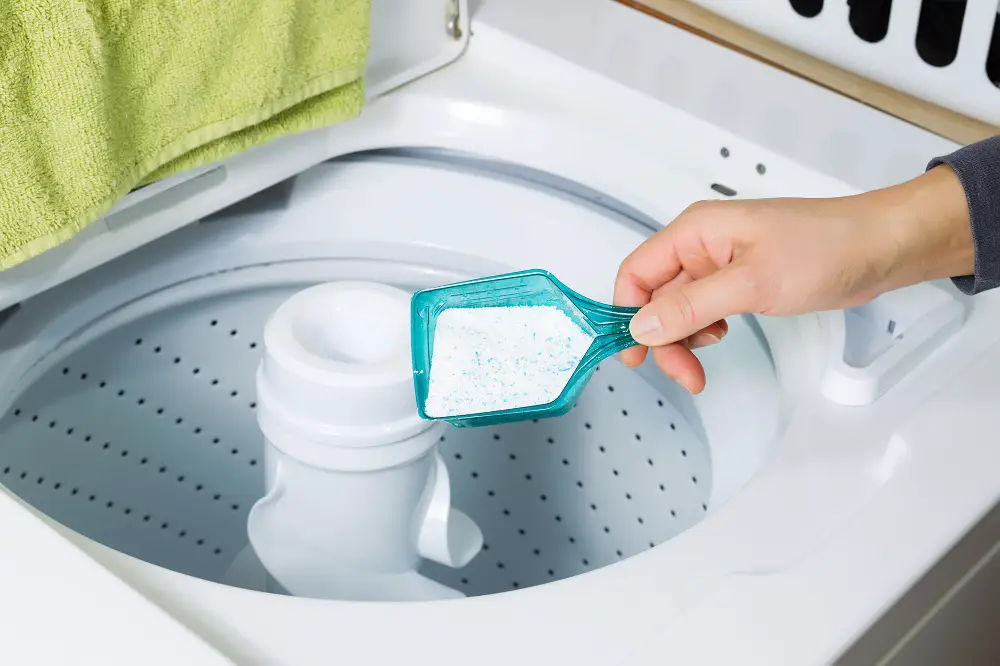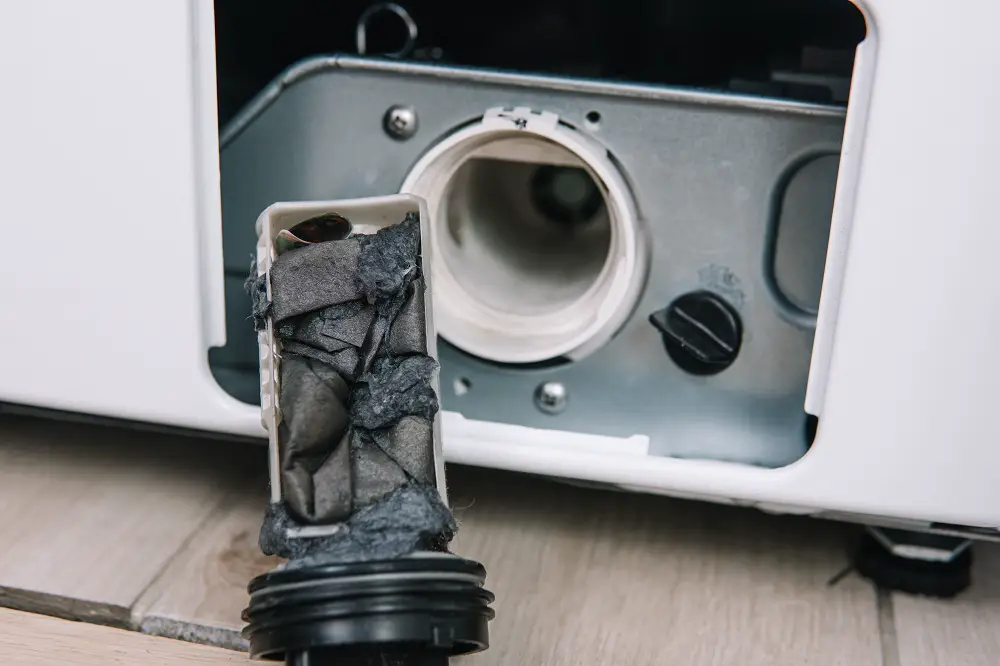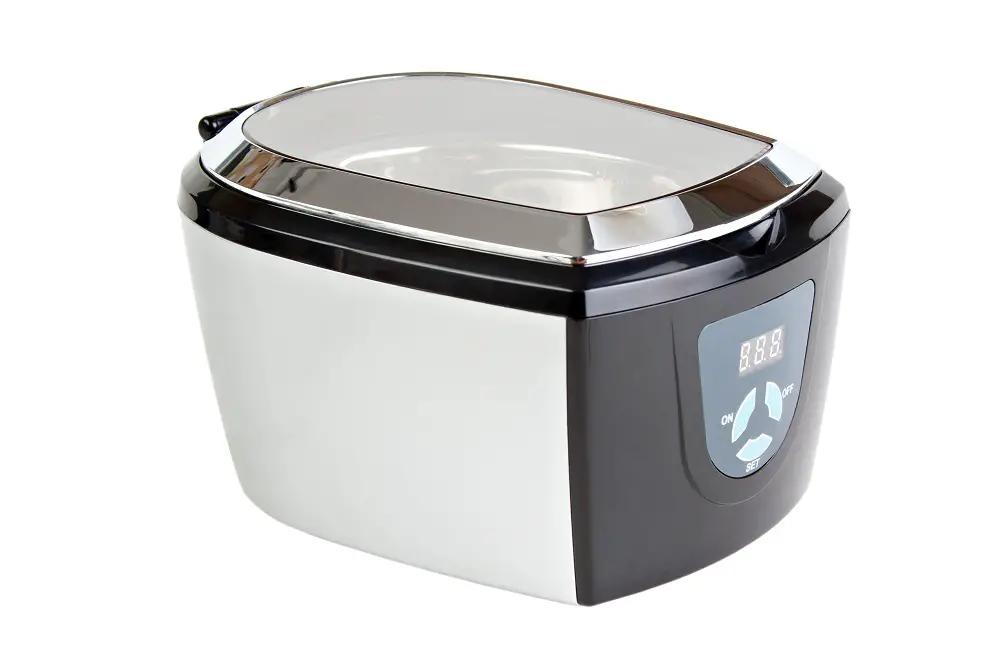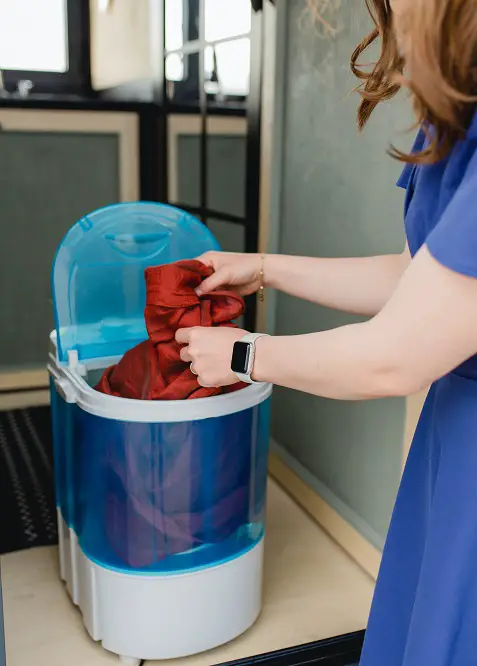A portable washing machine helps save money, space, electricity, and water in the long run. But how long do these portable washing machines last?
Most portable washing machines have an average lifespan of 7 – 10 years, depending on the frequency of use, maintenance, and brand. A mini portable washing machine doesn’t last as long as a larger clothes washer. These machines might last about 5 – 7 years with proper maintenance.
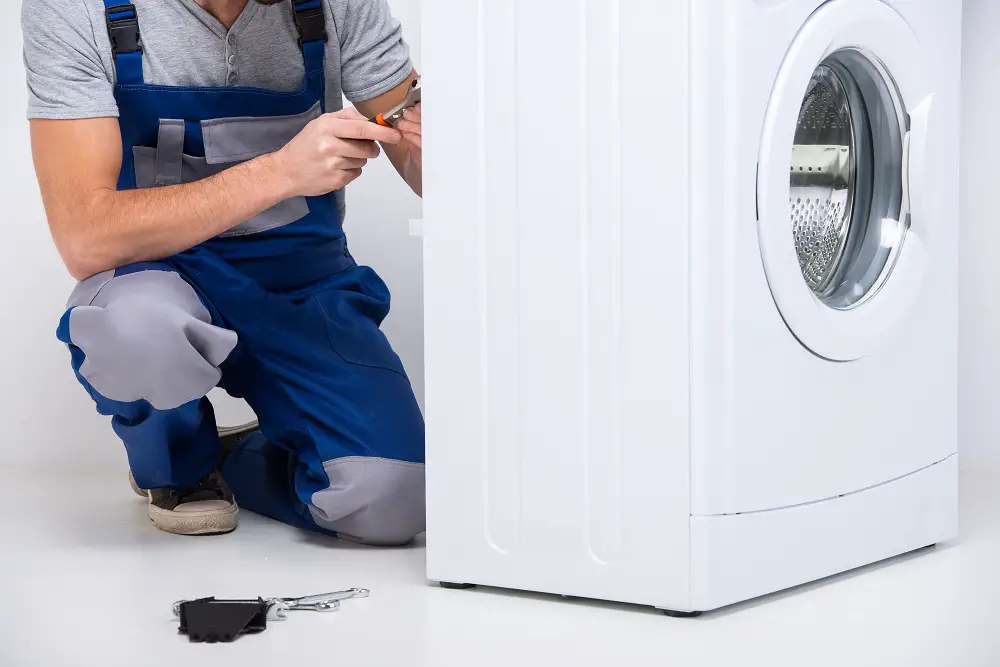
Table of Contents
Lifetime of Portable Washers
Different types of portable washing machines have different lifespans. Here’s an overview of the lifetime of portable washers:
| Type of Washer | Expected Lifespan |
|---|---|
| Regular Washer | 11 – 14 years |
| Portable Electric Washer | 7 – 10 years |
| Semi-automatic Portable Washer | 9 – 10 years |
| Mini Portable Electric Washer | 5 – 7 years |
| Mini Portable Manual Washer | ~ 5 years |
3 Reasons Portable Washers Don’t Last Long
Usually, portable washers don’t last as long as full-sized washers mainly because of the following reasons:
- They have a cheaper build than a full-size washer (which is why they also cost lesser).
- A portable machine is less stable than a full-sized washer.
- Portable washers aren’t as resistant to heat and moisture as regular washers.
How to Extend the Lifetime of Portable Washers
Here are some tips that can extend the lifetime of your portable washer by a few years.
Keep the Machine Level
Portable washing machines work much like a standard washing machine and wash the laundry in a rotating drum, producing vibrations. The spin cycle causes vibrations that could damage the washer if it isn’t even.
Keeping the machine balanced provides stability, and the vibrations don’t damage the machine’s internal mechanisms. Ensure the appliance is level front-to-back and side-to-side.
Avoid Overloading the Machine
It’s essential not to exceed the load capacity recommendation of a portable machine while doing laundry. Clothes require sufficient space to move in the drum during a wash cycle.
Overloading the machine won’t clean the clothes adequately during the rinse cycle, with chances of detergent residue remaining. Also, it might damage the motor and frame eventually.
Similarly, avoid underloading the machine.
Load the washer to three-fourths of the drum capacity and distribute the clothes evenly.
Use the Right Wash Cycles
Choosing the right wash cycle to suit the load type you’ll be washing is essential.
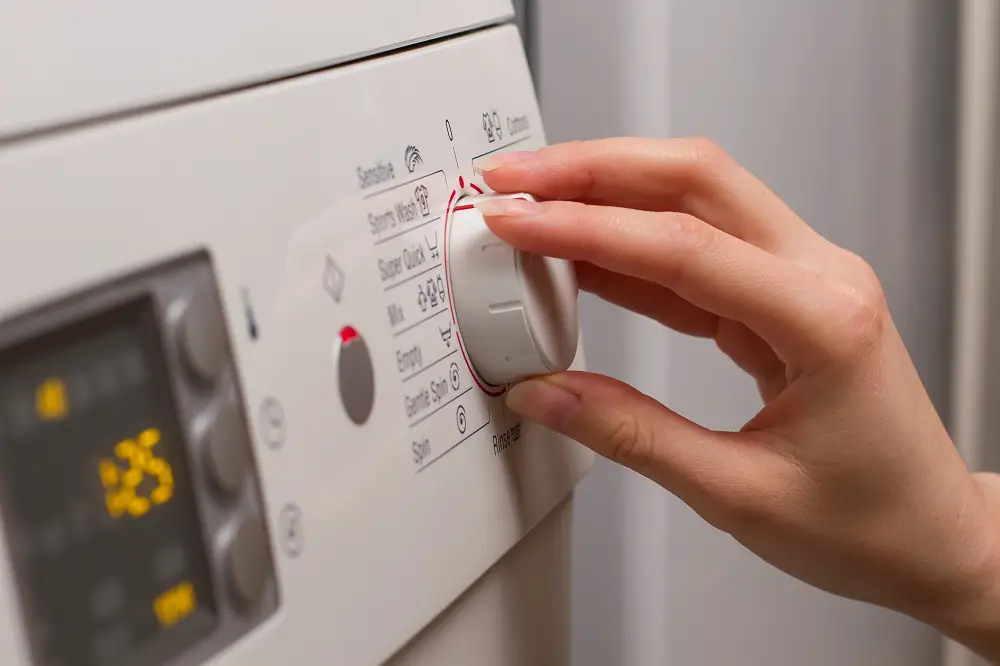
Many portable washing machines come with different wash cycles (most have five wash cycles, while some have even ten). Such machines are programmed to work differently for various load types.
Install a Water Softener
Install a soft water system to convert the hard water into soft water, helping your machine last longer and clean your clothes better.
If you have hard water, it can cause mineral buildup and faster wear in your washing machine. Your clothes might also feel stiff or unclean since the minerals can trap dirt and soap on the clothes.
Don’t Use Excess Detergent
Check the washer’s user manual and use the right type of detergent in the recommended amount.
Using too much detergent makes your machine work harder to rinse off the soap suds. It might even use an extra rinse cycle, extending the wash time and eventually reducing the machine’s lifespan.
Detergent overuse causes residual buildup on the washer drum, causing blockages and damage.
Check Your Pockets
Always check and empty your pockets before loading your laundry into the machine.
Metal items like coins, keys, and pens can damage the drum and affect the machine’s efficiency. Tiny objects can also get stuck in the drain hose and keep water from draining normally.
Regular Maintenance
Dirt, dust, and soap buildup can harm the washer if not cleaned regularly. Run an empty cycle with some vinegar and baking soda, or use washing machine cleaning tablets.
Also, clean the detergent dispenser drawer, filters, hoses, exterior body, and seal of the washer door.
Quickly Remove Wet Clothes to Prevent Mold
Avoid leaving wet clothes in the washer for too long since the moisture will cause mold and mildew formation inside the machine.
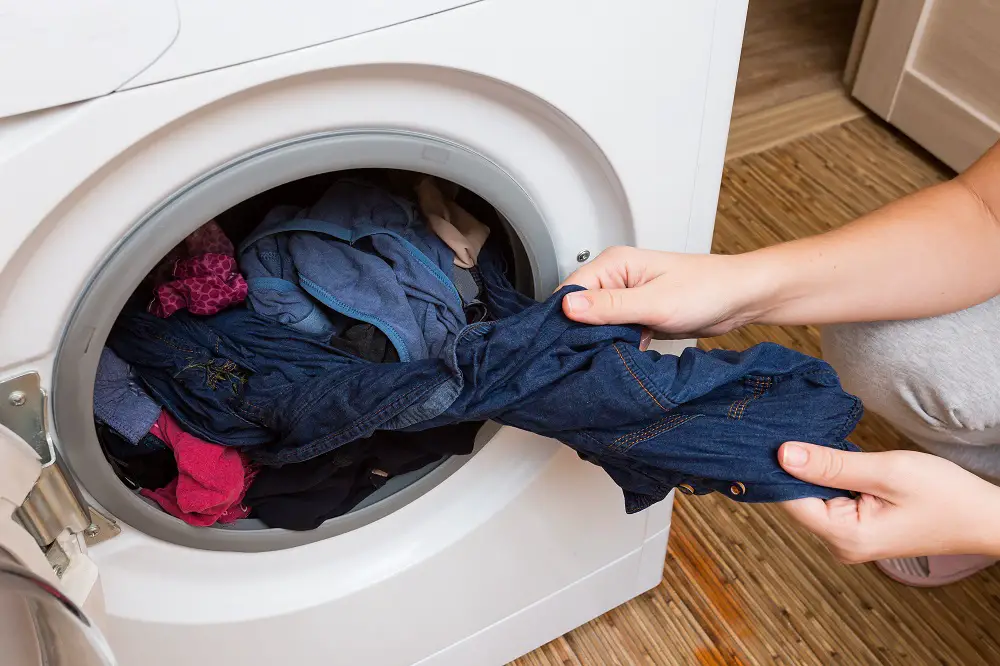
Another way to avoid mold is to keep the washer door open between loads to let the machine dry. Clean the seals with a solution of white vinegar and water to minimize foul smells and kill any germs.
Reduce Use Frequency
Reducing the number of washes per week is a great way to extend the machine’s lifespan.
Washing laundry about three times a week avoids overworking the machine or stressing its motor, drive belts, and coupling.
Portable Washers That Last Long
Most portable washers these days are designed to be more energy efficient and use less water. However, the more important factor is how long a portable washer can last.
Here are some portable washers that last long, provided they’re used as per manufacturer recommendations and undergo regular maintenance.
Comfee Portable Washing Machine
This portable washer from Comfee is fully automatic, easy to use, and has six commonly used programs (Normal, Heavy, Delicate, Bulky, Quick, and Spin only). It also has an extra rinse option and three water temperatures.

The stainless steel tub and high-quality, durable motor ensure the machine lasts longer. Although it’s compact and saves space, it can hold about 11 lbs of laundry.
With its energy-saving feature, this machine saves as much as 84% energy compared to similar models, easily making it the best portable washing machine to help reduce your electricity bill.
Other features include a delay start function, a child lock feature, one-touch electronic controls with an LED display, and a clear see-through lid.
Kuppet Compact Twin Tub Portable Washing Machine
This semi-automatic compact washer has a washer tub with an 18 lbs capacity and a separate spinner tub with an 8 lbs capacity.

Unlike most other portable machines, this is a comparatively large-capacity washer, and both sides can be run simultaneously (washer and spinner). There are separate timer controls for wash and spin operations.
Its powerful 1300 RPM dual motor works with a maximum frequency of 60 Hz and is built to last long.
Conclusion
Unlike a standard-size washing machine that lasts 11 – 14 years, a compact washer can last about 7 – 10 years, depending on the brand, use frequency, and maintenance. The more compact, mini portable machines might last just about 5 – 7 years with regular maintenance.
Portable washers don’t last as long as regular washers because of a cheaper build, less stability, and less resistance to heat and moisture.
